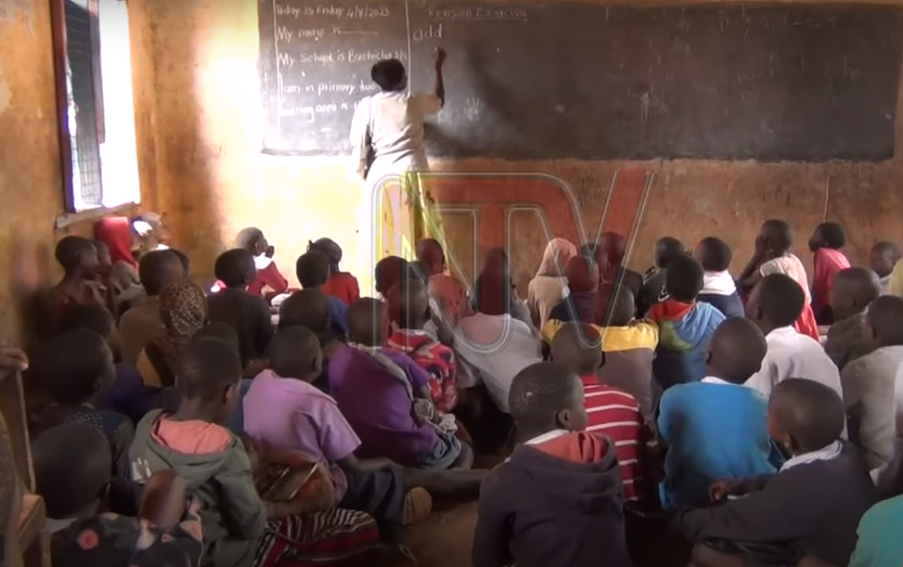Should students be repeating class in this day and era?

The pressure to ensure one passes their exams gnaws at each child for fear of failure. But is repeating a class the solution to this failure? FILE PHOTO
What you need to know:
- To repeat or not to repeat, that is the question. While we agree that education is very important, it is draining, strenous and at times demeaning for any child to continuosly repeat a class on grounds of failing to get the required pass mark. More to that, in a world where the need for talent and skill is at all time high, should school work be the only way to assess one’s prowess in life?
“I don’t remember any class during all my years in both primary and secondary school where I didn’t get the remark, ‘recommended to repeat’. My mother was always disappointed when it came to my academics and report card. She knew that the best I could do was be promoted on probation, after all the episodes of beatings and being forced to read my books.
By the time I reached Primary Seven, she had surrendered all and any hopes of me ever getting even a second grade - and I never did – in the end, all she wanted me to do was finish school,” Andrew Kibuuka, a woodworker and proprietor of Kibuuka’s Furniture Mart, recalls.
Nevertheless, regardless of his poor academic performance, Kibuuka had creativity and an artistic eye. When asked what was always going on in his mind while he was in class, he deliberately says,
“Being in class always made me feel suffocated. I wanted to be outdoors playing or building things. This feeling got even stronger when I transitioned to secondary school. School was not exciting for me, it felt like I was forcing everything. Technical drawing was my favourite subject, and it was this that opened the door to discovering what I loved doing – carpentry,” he shares.
After struggling through secondary school and finishing his O-Level, Kibuuka knew he would not continue with secondary school.
“I sat my parents down and explained that I wanted to branch into a course in carpentry and woodwork. They did not receive this news well, but they eventually agreed with me, and I went to Kabasanda Technical Institute where I studied carpentry and joinery,” he explains.
Like Kibuuka, many other students totter through the path of our academically inclined education, that largely believes that every learner should be academically excellent, or made to repeat the class as many times as possible until they adorn the garment of academic excellence.
The promotional term is nearing its end and parents are already anxious about the kind of results their children will bring home. In extreme cases, some are ready with canes in the corner of the house, ready to punish any child who will make the grave mistake of failing.
However, shouldn’t this ‘all academics’ era of ours progress into the world we currently live in, that requires and demands for natural intelligence and creativity?
Limited options
Charles Ssebaggala, the director of studies St. Luke Primary School in Luweero, shares out of experience that both parents and schools have everything to do with this kind of attitude.
“Parents put pressure on schools that their children have to and must pass highly. In return, the schools put pressure on the teachers, and then the circle continues on to the students.
Additionally, we only have a limited range of options offered to learners, that is, mostly academics, and it is on that basis that we assess them. However, if there are other practical skills that are recognised as part of what learners get as they go through school, then they would have had different things on which to be assessed. That way, if a learner is not excelling in academics, they would have other areas to excel in,” he explains.
Capitalising on talent
Airing the same concerns, Samuel Awori, an educationist and vocational education advocate, emphasises that there is no need for students to be made to repeat a class.
“If the problem is just occurring once, that is understandable but there are students that have always had academic challenges in school. We should be critically looking out for and trying to get a lasting solution for such learners because even repeating the class in such cases never helps,” he shares.
He believes that the solution for such learners is to identify their talents, strengths and abilities. “I am not talking about a voluntary initiative by just some schools that care, I am talking about a general policy or framework that emphasizes development of individual skills, alongside the academic path right from primary school, otherwise, what we have today suffocates these skills and even kills them and yet today, we need them more than ever,” Awori shares.
More fundamentally, Awori suggests some peculiar options. “Personally, I would like to look beyond making a student repeat an academic year. I am looking at all that is lacking in our education, and yet we can actually do something about it. Talk about having different academies that specifically train students in their different talents so that they can make the best out of them. Things such as a music academy, football academy, creative arts academy, and visual arts academy where a parent can take their child, regardless of their age,” he says,
Awori adds that though some parents are sickened and are tired of the present status quo in education, they have no other option than endure what is being offered. However, if such options are available for parents and learners to choose, we might be surprised by the outcomes.
There is not one solution to a problem and the same applies to a child’ failure to attain the required marks. Therefore, insisting on repeating may not be all there is for such a student or pupil.
Bringing in the balance
Denis Nimusiima, a teacher at Mbarara Junior School, explains that for a child to repeat a class, it depends on their ability.
“There are some learners who will understand and grasp concepts better by being made to repeat a class. These include average performers, who are simply playful in class or are just being inattentive. However,there is also a child that no matter how many times they repeat, it will not help them improve at all. In this case, making such a child repeat would not help the learner at all,” he says.
Without going into details of how this is strenuous, especially on the parent’s pocket, the usual practice by some schools has been and still is that when a learner fails to attain a given pass mark set by the school, then the solution is to make them repeat.
However, that kind of approach is not practical since not every academic challenge that a learner faces can be fixed by making them repeat a year. Sometimes, teachers have to make a critical assessment of the student in question over a long period of time.
“If the child had been given all the needed and necessary extra support by teachers and parents but the performance does not change, then one of the conclusions may be that academics is not one of the learners strength and so, exploring their other potential and developing them is needed,” Nimusiima recommends.




